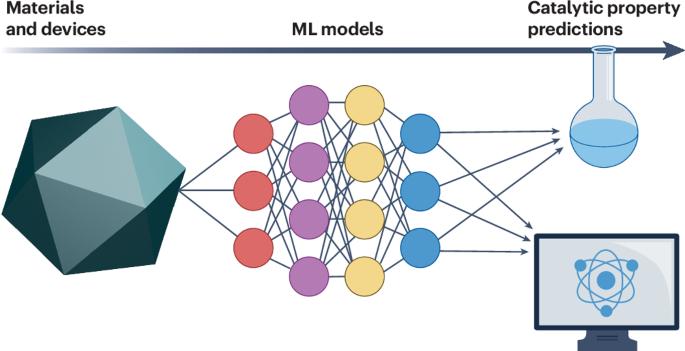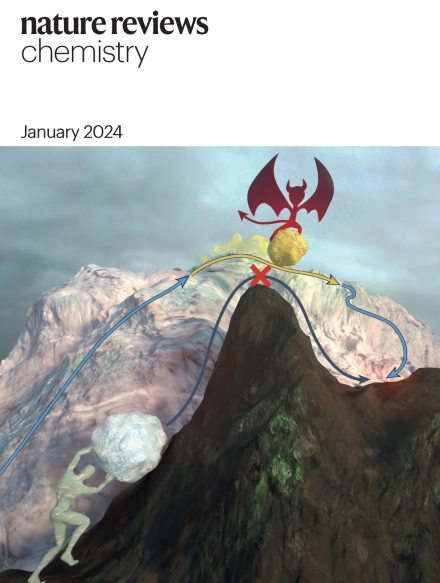Developing machine learning for heterogeneous catalysis with experimental and computational data
IF 51.7
1区 化学
Q1 CHEMISTRY, MULTIDISCIPLINARY
引用次数: 0
Abstract
Machine learning techniques have emerged as a useful tool for identifying complex patterns and correlations in large datasets, such as associating catalyst performance to its physicochemical properties. In the heterogeneous catalysis communities, machine learning models have mostly been developed using high-throughput quantum chemistry calculations, with only a few case studies resulting in experimentally validated catalyst improvements. This limited success may be due to the use of simplified catalyst structures in computational studies and the lack of comprehensive experimental datasets. In this Review, we bring together studies integrating high-throughput approaches and machine learning for the advancement of solid heterogeneous catalysis, leveraging both experimental and computational data. We systematically analyse trends in the field, based on the descriptors used as model input and output; the materials, devices, or reactions investigated; the dataset size; and the overall achievements. Furthermore, for models reporting unitless R2 values, we compare the performances based on these mentioned trends. Machine learning aids heterogeneous catalysis research by linking performance to physicochemical controllable properties. This Review discusses experimental and computational high-throughput and machine learning approaches, comparing them by modelling method, features, dataset size, accuracy and reaction type.

利用实验和计算数据开发多相催化的机器学习。
机器学习技术已经成为识别大型数据集中复杂模式和相关性的有用工具,例如将催化剂性能与其物理化学性质联系起来。在多相催化领域,机器学习模型大多是使用高通量量子化学计算开发的,只有少数案例研究导致实验验证的催化剂改进。这种有限的成功可能是由于在计算研究中使用了简化的催化剂结构和缺乏全面的实验数据集。在这篇综述中,我们汇集了整合高通量方法和机器学习的研究,以促进固体多相催化,利用实验和计算数据。基于作为模型输入和输出的描述符,我们系统地分析了该领域的趋势;实验:所研究的材料、装置或反应;数据集大小;以及总体成就。此外,对于报告无单位R2值的模型,我们根据上述趋势比较性能。
本文章由计算机程序翻译,如有差异,请以英文原文为准。
求助全文
约1分钟内获得全文
求助全文
来源期刊

Nature reviews. Chemistry
Chemical Engineering-General Chemical Engineering
CiteScore
52.80
自引率
0.80%
发文量
88
期刊介绍:
Nature Reviews Chemistry is an online-only journal that publishes Reviews, Perspectives, and Comments on various disciplines within chemistry. The Reviews aim to offer balanced and objective analyses of selected topics, providing clear descriptions of relevant scientific literature. The content is designed to be accessible to recent graduates in any chemistry-related discipline while also offering insights for principal investigators and industry-based research scientists. Additionally, Reviews should provide the authors' perspectives on future directions and opinions regarding the major challenges faced by researchers in the field.
 求助内容:
求助内容: 应助结果提醒方式:
应助结果提醒方式:


